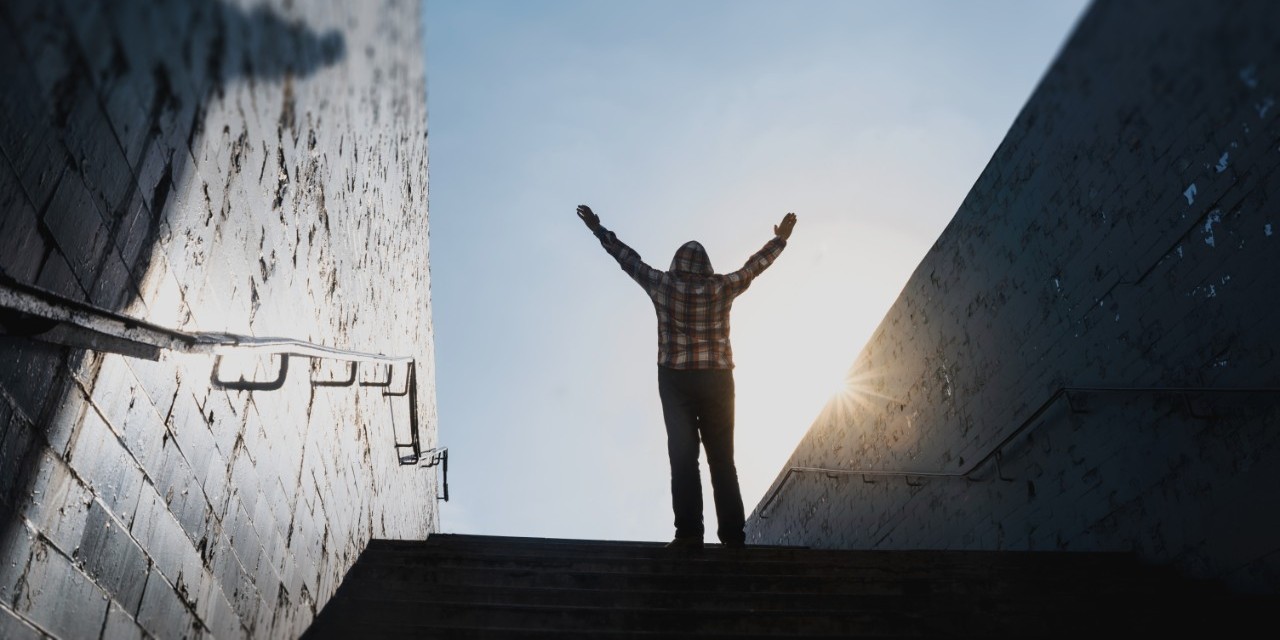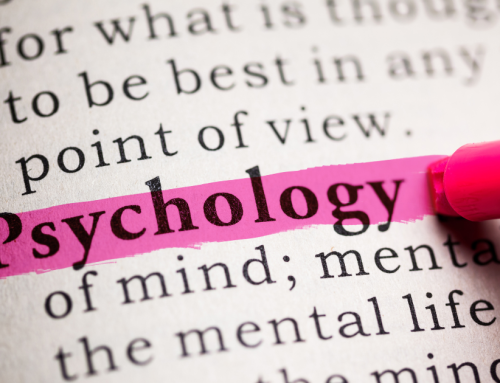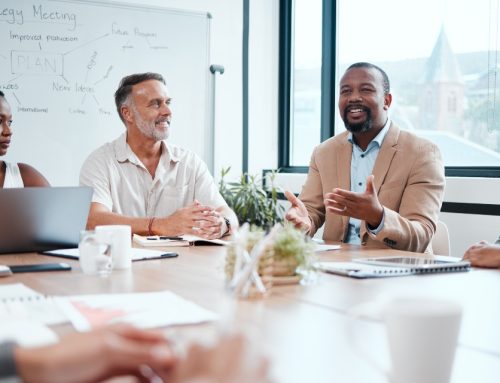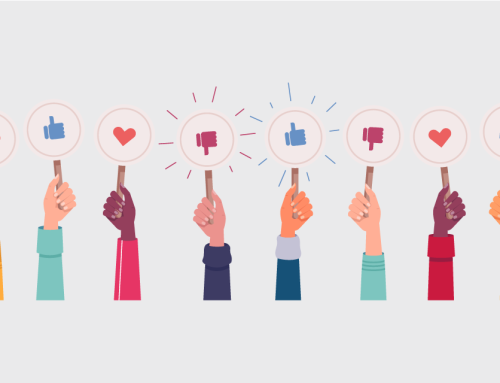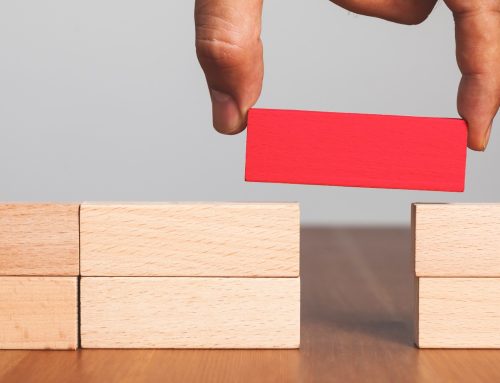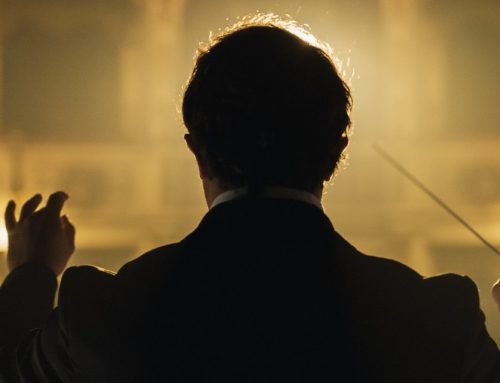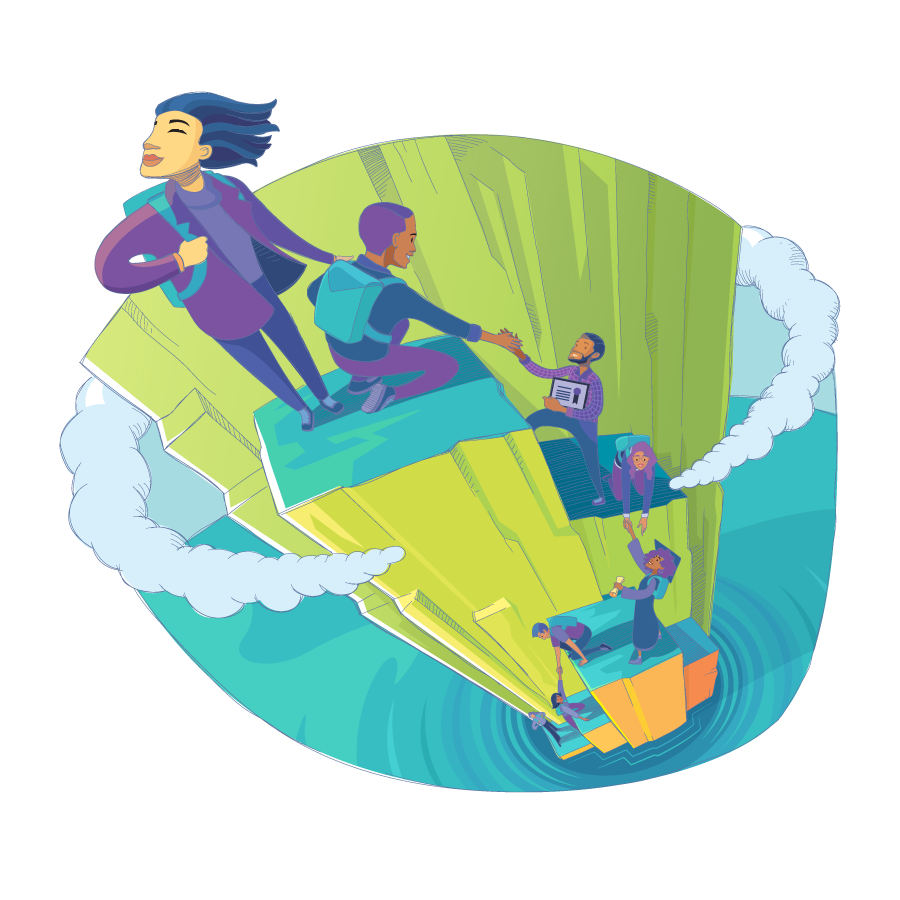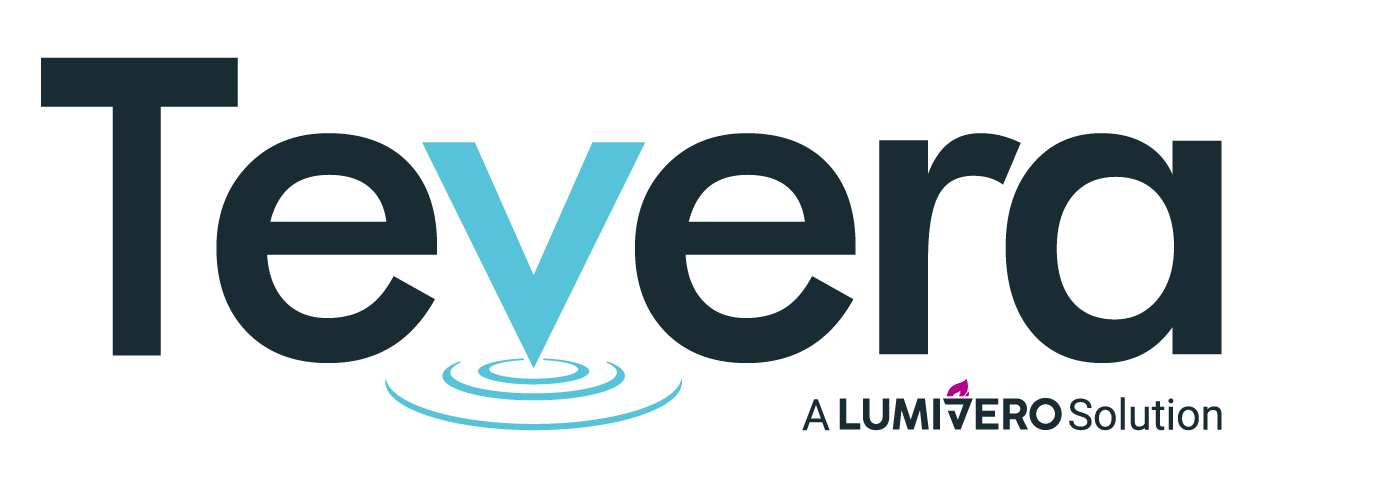“Recovery has Been a Miracle. It Doesn’t Just Give You Your Life Back. It Gives You a Purpose.”
Counselors are asked to give of themselves every day and care for people when they’re most vulnerable. [Jane Smith]* sat down with us to tell us about her journey from recovery to soon-to-be counselor and how the counseling profession has changed her life.
*Names have been changed out of respect for the privacy of the recovery community.
Please introduce yourself and give us a little background on who you are.
My name is Jane Smith and I’m in my mid-thirties. I live with my dog, love to thrift shop, refurbish furniture, swim, paint, and draw. I actually discovered my love of art during recovery. I picked up a pencil one day, more or less, and found out that wow! I can draw. It was one of those moments of self-discovery and really meeting myself for the first time. It’s pretty cool to learn new things about yourself and love these unique gifts that make us who we are.
Tell us about your journey. Recovery to soon-to-be-counselor, that’s quite the inspiration! What inspired you to go into counseling?
It all started when I went to rehab and realized I had a problem. I didn’t really think I did before that. I guess I thought they were going to teach me to drink like a lady or something. Obviously, that’s not what happens in rehab. They bust every idea you have that you can control your substance use when you already have an issue. After rehab, I thought I knew what I was doing. Of course, I drank again, and ended up in jail for totalling my vehicle.
While I was in jail, I had a broken arm, and they didn’t set it. So I was in suicide watch for a little over a week and my arm started to grow back in the wrong way. During that week, I was completely naked. It was awful. They had me on medication that wasn’t mine so I was losing my mind. I was cold. I wasn’t able to bath that entire time. I would scream and cry all night.
When I finally got out, I wanted to drink more than ever. That experience was so traumatic. Nothing like that had happened to me before. But they had put an ankle monitor on me to make sure I didn’t drink. I knew that if I had alcohol, I was going to go back to jail, which was mandatory.
At that stage, my parents kicked me out. I had already left my apartment when I was in rehab. I felt like I was spinning and lost and was staying on someone’s couch. I knew that I had to find relief or that I’d die.
So, I finally went to a recovery meeting. When I walked in, a woman approached me and asked me if I had a sponsor. I didn’t, and she became my first one. I started working through the steps of recovery.
How did you feel starting the process of recovery?
I slowly started to realize the amount of injustice that had been done to me while I was incarcerated.
I had to have surgery on my arm around that time too. It had to be re-broken and put back into place. There are still plates and screws in there from the correction. I didn’t even know if I would be able to use my hand again. It was a physical reminder of what happened to me in there and what would happen if I went back.
But it also woke something up in me. Once I got stable, I started going to the jail and talking with women who were also in recovery. I would tell them that they have to get out of this terrible place. Guards aren’t trained to deal with mental health crises and it’s a bad situation made worse, over and over again.
What finally inspired you to start down the counselor education path?
I visited jails for a few years before I decided to apply to schools. It really became a burning fire inside of me. I knew something had to change, not just for myself but for others. I wanted to help people avoid what I went through or if they’ve gone through it themselves, help them find recovery.
What did you learn while in school? Did it help you with your own experience?
I really learned more about the broader picture. I learned about multiculturalism and ethics. You find out how big the system is and that you need to look at every vantage point to know how best to help the individual and make systemic change. The biggest “aha” for me was realizing that sometimes the best way to make change is to work with one person. The seed that is planted by working with one person then can grow and make change for others. It was a very humbling experience.
I also realized that I couldn’t just share traumatic stories. You learn how to share professionally. I started hearing similar stories of people in jail being tied to chairs for 72 hours with a bucket under them. It’s a horrifying, traumatic experience. It was intense to learn about and intense to go through it myself.
That sparked something in me. People aren’t trained to deal with these mental health crises. They view it as an attack on authority so they respond by taking your clothes and strapping you down. It doesn’t help anyone heal.
I’m so sorry that that happened to you.
Well, I’m grateful it did. Because if it didn’t, I don’t think I would have woken up. It’s one of those moments that had to happen to shake me. I realized I’d die if nothing changed. It’s sad that it took that but it was life-changing for me.
Now, I see inmates and how poorly they’re treated. They’re not bad people. They’re people who have experienced trauma and neglect and have coped with it by using drugs or alcohol. Maybe they had a mental health issue and committed a crime. But now they’re being punished for years and years, being treated maliciously during their incarceration. And I don’t mean to blame anyone. The system simply isn’t equipped to help people recover. It’s a punitive system but these people need help.
Did this have an impact on what area of counseling you want to focus on?
Absolutely. My biggest passions are correctional counseling and addiction counseling. I’d like to also incorporate my passion for art and do an integrated approach to therapy.
Tell us about your educational journey.
The further I get in my master’s program, the more I learn. And the more I learn, the more I realize what I don’t know, which makes me want to learn more. It keeps your mind fresh and open. Like, when I learned about attachment theory and how much stems from family issues and the way you attach to other people, it was crazy to learn and made so much sense.
Now, I have just one month left before I graduate.
Was your education pretty straightforward?
Oh not at all. I went to a school that closed and had to reapply to a new one, where thankfully I got in. But not all of my credits transferred and there was a point where I thought all of my grades might disappear. I literally found out within 24 hours that the school I was going to was closing. It was “good luck” and that was it.
The school I’m at now has been amazing. They accepted me and helped me get everything sorted out.
My academic path has been anything but easy but I knew that this is what I’m meant to do. Getting my masters degree is the biggest thing I’ve done in my life, after being in recovery, and what with changing schools, doing field, and trying to graduate during a pandemic, it’s been a unique challenge for sure.
But I want to be able to support myself and help others so I keep pushing forward.
What’s the biggest thing you’re looking forward to about graduating?
I already have such a sense of pride for doing all of this. The sense of accomplishment at graduating, being able to support myself, and then to be able to give back to others, it feels like a miracle.
What would you tell others who experience obstacles?
Stay connected to your support system. Mine is my family, dog, God, and the recovery community. The most important thing is to just do the next right thing. Sometimes I think something will be a catastrophe but so far, I’ve survived it all and come out stronger for it.
Also, don’t take yourself so seriously. Do things that are fun for you. Like, I love to swing on swing sets. I make sure to practice self-care and carve out time for friends and myself.
What do you envision your career looking like?
I want to work at a recovery facility. My goal is to help others recover from addiction. I used to think I wanted to be rich or famous but I’ve learned that’s not what brings fulfillment. I want to help people out of trauma and create a life I love. I love being a team player and being of purpose to others makes me feel great. I’m also looking forward to continuing to learn more about counseling. I plan on always doing continuing education and pursuing certifications.
What do you think the future of mental health should look like?
At the individual level, it’s been so helpful for me. I think everybody could use some form of self-care work because we get so fixated on external factors that we forget about our internal selves.
As for the field of mental health, man, what could we not use? We need to rethink everything from funding to incarceration versus rehabilitation. Look at the Netherlands. They shut down most of their prisons and converted them to rehabilitation centers. Providing people with the tools to turn their lives around is crucial. Right now, incarcerated people don’t get much help and there are so many mental health stressors that it compounds the problem. We also need to focus on kids and building support systems for them when they have traumatic or tumultuous homes. We need more funding for education.
Can you talk more about how important individual attention is for changing the system?
Yeah. If you can plant one seed with somebody they might not get it right away but when you show them love, support, and commitment, it builds over time. They learn that counseling is a safe place to come.
We need to treat people with open-mindedness and empathy and let them come at their own pace. I’ve seen some incredible things happen where people have started to recover and are now in the counseling field themselves. Like me, I guess.
One person’s action can inspire thousands of people. I’ve seen it where I’m interning. One woman started this agency and has helped more than 2,500 formerly incarcerated women. Because of her, these women have gone on to do incredible things. Some have graduated. I’ve watched them celebrate their first year of recovery. I’ve seen them get their children back. And it’s because one woman decided she wanted to make a difference. Now these women are going on to sponsor others and sow their own seeds that will keep making ripples of change.
What would you tell your younger self, knowing what you know now?
I’d give her a hug and tell her that her trauma mattered. She’s worth so much more than she thought she was. And I’d tell her to get some help. Right away. It’s hard to reach out but you just have to do it.
What advice would you give people struggling to take that next step?
I have an accountability buddy when I’m having difficulty. The first time I sought counseling, I also told myself that I owed it to myself to heal. I gave myself permission. I looked at all the things I did for myself, like watching TV and friendships and said that I also deserved to heal internally.
It’s also okay to be nervous. If you are, bring someone with you who can help you feel less so but also hold you accountable.
Would you tell others to become a counselor?
Yes. Go for it fully. Honestly, every bit of it has been worth it. Even the tough stuff. I wouldn’t change going through COVID-19, having my first school collapse, and almost burning out.
I love what I do. Even in the toughest situations, I go in every day to my internship and it’s joyful. I’m fulfilled. I have purpose.
Recovery has been a miracle. It doesn’t just give you your life back. It gives you a purpose. Today, I show up for stuff. I’m accountable. I’m a person with values I love, I care about others, and I have real friendships. It was so hard, early in recovery, but I just kept going. So if anyone out there is considering recovery or counseling, it is 100% worth it.
Thank you to Jane Smith for sharing her story with us. Tevera was started with the goal of supporting future counselors and we couldn’t be more grateful for people like Jane who devote themselves to caring for others and making the world a healthier, more joyful place.
SOLUTIONS
RELATED POSTS
PRODUCT OVERVIEW
See how Tevera can elevate your program.
“Recovery has Been a Miracle. It Doesn’t Just Give You Your Life Back. It Gives You a Purpose.”
Counselors are asked to give of themselves every day and care for people when they’re most vulnerable. [Jane Smith]* sat down with us to tell us about her journey from recovery to soon-to-be counselor and how the counseling profession has changed her life.
*Names have been changed out of respect for the privacy of the recovery community.
Please introduce yourself and give us a little background on who you are.
My name is Jane Smith and I’m in my mid-thirties. I live with my dog, love to thrift shop, refurbish furniture, swim, paint, and draw. I actually discovered my love of art during recovery. I picked up a pencil one day, more or less, and found out that wow! I can draw. It was one of those moments of self-discovery and really meeting myself for the first time. It’s pretty cool to learn new things about yourself and love these unique gifts that make us who we are.
Tell us about your journey. Recovery to soon-to-be-counselor, that’s quite the inspiration! What inspired you to go into counseling?
It all started when I went to rehab and realized I had a problem. I didn’t really think I did before that. I guess I thought they were going to teach me to drink like a lady or something. Obviously, that’s not what happens in rehab. They bust every idea you have that you can control your substance use when you already have an issue. After rehab, I thought I knew what I was doing. Of course, I drank again, and ended up in jail for totalling my vehicle.
While I was in jail, I had a broken arm, and they didn’t set it. So I was in suicide watch for a little over a week and my arm started to grow back in the wrong way. During that week, I was completely naked. It was awful. They had me on medication that wasn’t mine so I was losing my mind. I was cold. I wasn’t able to bath that entire time. I would scream and cry all night.
When I finally got out, I wanted to drink more than ever. That experience was so traumatic. Nothing like that had happened to me before. But they had put an ankle monitor on me to make sure I didn’t drink. I knew that if I had alcohol, I was going to go back to jail, which was mandatory.
At that stage, my parents kicked me out. I had already left my apartment when I was in rehab. I felt like I was spinning and lost and was staying on someone’s couch. I knew that I had to find relief or that I’d die.
So, I finally went to a recovery meeting. When I walked in, a woman approached me and asked me if I had a sponsor. I didn’t, and she became my first one. I started working through the steps of recovery.
How did you feel starting the process of recovery?
I slowly started to realize the amount of injustice that had been done to me while I was incarcerated.
I had to have surgery on my arm around that time too. It had to be re-broken and put back into place. There are still plates and screws in there from the correction. I didn’t even know if I would be able to use my hand again. It was a physical reminder of what happened to me in there and what would happen if I went back.
But it also woke something up in me. Once I got stable, I started going to the jail and talking with women who were also in recovery. I would tell them that they have to get out of this terrible place. Guards aren’t trained to deal with mental health crises and it’s a bad situation made worse, over and over again.
What finally inspired you to start down the counselor education path?
I visited jails for a few years before I decided to apply to schools. It really became a burning fire inside of me. I knew something had to change, not just for myself but for others. I wanted to help people avoid what I went through or if they’ve gone through it themselves, help them find recovery.
What did you learn while in school? Did it help you with your own experience?
I really learned more about the broader picture. I learned about multiculturalism and ethics. You find out how big the system is and that you need to look at every vantage point to know how best to help the individual and make systemic change. The biggest “aha” for me was realizing that sometimes the best way to make change is to work with one person. The seed that is planted by working with one person then can grow and make change for others. It was a very humbling experience.
I also realized that I couldn’t just share traumatic stories. You learn how to share professionally. I started hearing similar stories of people in jail being tied to chairs for 72 hours with a bucket under them. It’s a horrifying, traumatic experience. It was intense to learn about and intense to go through it myself.
That sparked something in me. People aren’t trained to deal with these mental health crises. They view it as an attack on authority so they respond by taking your clothes and strapping you down. It doesn’t help anyone heal.
I’m so sorry that that happened to you.
Well, I’m grateful it did. Because if it didn’t, I don’t think I would have woken up. It’s one of those moments that had to happen to shake me. I realized I’d die if nothing changed. It’s sad that it took that but it was life-changing for me.
Now, I see inmates and how poorly they’re treated. They’re not bad people. They’re people who have experienced trauma and neglect and have coped with it by using drugs or alcohol. Maybe they had a mental health issue and committed a crime. But now they’re being punished for years and years, being treated maliciously during their incarceration. And I don’t mean to blame anyone. The system simply isn’t equipped to help people recover. It’s a punitive system but these people need help.
Did this have an impact on what area of counseling you want to focus on?
Absolutely. My biggest passions are correctional counseling and addiction counseling. I’d like to also incorporate my passion for art and do an integrated approach to therapy.
Tell us about your educational journey.
The further I get in my master’s program, the more I learn. And the more I learn, the more I realize what I don’t know, which makes me want to learn more. It keeps your mind fresh and open. Like, when I learned about attachment theory and how much stems from family issues and the way you attach to other people, it was crazy to learn and made so much sense.
Now, I have just one month left before I graduate.
Was your education pretty straightforward?
Oh not at all. I went to a school that closed and had to reapply to a new one, where thankfully I got in. But not all of my credits transferred and there was a point where I thought all of my grades might disappear. I literally found out within 24 hours that the school I was going to was closing. It was “good luck” and that was it.
The school I’m at now has been amazing. They accepted me and helped me get everything sorted out.
My academic path has been anything but easy but I knew that this is what I’m meant to do. Getting my masters degree is the biggest thing I’ve done in my life, after being in recovery, and what with changing schools, doing field, and trying to graduate during a pandemic, it’s been a unique challenge for sure.
But I want to be able to support myself and help others so I keep pushing forward.
What’s the biggest thing you’re looking forward to about graduating?
I already have such a sense of pride for doing all of this. The sense of accomplishment at graduating, being able to support myself, and then to be able to give back to others, it feels like a miracle.
What would you tell others who experience obstacles?
Stay connected to your support system. Mine is my family, dog, God, and the recovery community. The most important thing is to just do the next right thing. Sometimes I think something will be a catastrophe but so far, I’ve survived it all and come out stronger for it.
Also, don’t take yourself so seriously. Do things that are fun for you. Like, I love to swing on swing sets. I make sure to practice self-care and carve out time for friends and myself.
What do you envision your career looking like?
I want to work at a recovery facility. My goal is to help others recover from addiction. I used to think I wanted to be rich or famous but I’ve learned that’s not what brings fulfillment. I want to help people out of trauma and create a life I love. I love being a team player and being of purpose to others makes me feel great. I’m also looking forward to continuing to learn more about counseling. I plan on always doing continuing education and pursuing certifications.
What do you think the future of mental health should look like?
At the individual level, it’s been so helpful for me. I think everybody could use some form of self-care work because we get so fixated on external factors that we forget about our internal selves.
As for the field of mental health, man, what could we not use? We need to rethink everything from funding to incarceration versus rehabilitation. Look at the Netherlands. They shut down most of their prisons and converted them to rehabilitation centers. Providing people with the tools to turn their lives around is crucial. Right now, incarcerated people don’t get much help and there are so many mental health stressors that it compounds the problem. We also need to focus on kids and building support systems for them when they have traumatic or tumultuous homes. We need more funding for education.
Can you talk more about how important individual attention is for changing the system?
Yeah. If you can plant one seed with somebody they might not get it right away but when you show them love, support, and commitment, it builds over time. They learn that counseling is a safe place to come.
We need to treat people with open-mindedness and empathy and let them come at their own pace. I’ve seen some incredible things happen where people have started to recover and are now in the counseling field themselves. Like me, I guess.
One person’s action can inspire thousands of people. I’ve seen it where I’m interning. One woman started this agency and has helped more than 2,500 formerly incarcerated women. Because of her, these women have gone on to do incredible things. Some have graduated. I’ve watched them celebrate their first year of recovery. I’ve seen them get their children back. And it’s because one woman decided she wanted to make a difference. Now these women are going on to sponsor others and sow their own seeds that will keep making ripples of change.
What would you tell your younger self, knowing what you know now?
I’d give her a hug and tell her that her trauma mattered. She’s worth so much more than she thought she was. And I’d tell her to get some help. Right away. It’s hard to reach out but you just have to do it.
What advice would you give people struggling to take that next step?
I have an accountability buddy when I’m having difficulty. The first time I sought counseling, I also told myself that I owed it to myself to heal. I gave myself permission. I looked at all the things I did for myself, like watching TV and friendships and said that I also deserved to heal internally.
It’s also okay to be nervous. If you are, bring someone with you who can help you feel less so but also hold you accountable.
Would you tell others to become a counselor?
Yes. Go for it fully. Honestly, every bit of it has been worth it. Even the tough stuff. I wouldn’t change going through COVID-19, having my first school collapse, and almost burning out.
I love what I do. Even in the toughest situations, I go in every day to my internship and it’s joyful. I’m fulfilled. I have purpose.
Recovery has been a miracle. It doesn’t just give you your life back. It gives you a purpose. Today, I show up for stuff. I’m accountable. I’m a person with values I love, I care about others, and I have real friendships. It was so hard, early in recovery, but I just kept going. So if anyone out there is considering recovery or counseling, it is 100% worth it.
Thank you to Jane Smith for sharing her story with us. Tevera was started with the goal of supporting future counselors and we couldn’t be more grateful for people like Jane who devote themselves to caring for others and making the world a healthier, more joyful place.
“Recovery has Been a Miracle. It Doesn’t Just Give You Your Life Back. It Gives You a Purpose.”
Counselors are asked to give of themselves every day and care for people when they’re most vulnerable. [Jane Smith]* sat down with us to tell us about her journey from recovery to soon-to-be counselor and how the counseling profession has changed her life.
*Names have been changed out of respect for the privacy of the recovery community.
Please introduce yourself and give us a little background on who you are.
My name is Jane Smith and I’m in my mid-thirties. I live with my dog, love to thrift shop, refurbish furniture, swim, paint, and draw. I actually discovered my love of art during recovery. I picked up a pencil one day, more or less, and found out that wow! I can draw. It was one of those moments of self-discovery and really meeting myself for the first time. It’s pretty cool to learn new things about yourself and love these unique gifts that make us who we are.
Tell us about your journey. Recovery to soon-to-be-counselor, that’s quite the inspiration! What inspired you to go into counseling?
It all started when I went to rehab and realized I had a problem. I didn’t really think I did before that. I guess I thought they were going to teach me to drink like a lady or something. Obviously, that’s not what happens in rehab. They bust every idea you have that you can control your substance use when you already have an issue. After rehab, I thought I knew what I was doing. Of course, I drank again, and ended up in jail for totalling my vehicle.
While I was in jail, I had a broken arm, and they didn’t set it. So I was in suicide watch for a little over a week and my arm started to grow back in the wrong way. During that week, I was completely naked. It was awful. They had me on medication that wasn’t mine so I was losing my mind. I was cold. I wasn’t able to bath that entire time. I would scream and cry all night.
When I finally got out, I wanted to drink more than ever. That experience was so traumatic. Nothing like that had happened to me before. But they had put an ankle monitor on me to make sure I didn’t drink. I knew that if I had alcohol, I was going to go back to jail, which was mandatory.
At that stage, my parents kicked me out. I had already left my apartment when I was in rehab. I felt like I was spinning and lost and was staying on someone’s couch. I knew that I had to find relief or that I’d die.
So, I finally went to a recovery meeting. When I walked in, a woman approached me and asked me if I had a sponsor. I didn’t, and she became my first one. I started working through the steps of recovery.
How did you feel starting the process of recovery?
I slowly started to realize the amount of injustice that had been done to me while I was incarcerated.
I had to have surgery on my arm around that time too. It had to be re-broken and put back into place. There are still plates and screws in there from the correction. I didn’t even know if I would be able to use my hand again. It was a physical reminder of what happened to me in there and what would happen if I went back.
But it also woke something up in me. Once I got stable, I started going to the jail and talking with women who were also in recovery. I would tell them that they have to get out of this terrible place. Guards aren’t trained to deal with mental health crises and it’s a bad situation made worse, over and over again.
What finally inspired you to start down the counselor education path?
I visited jails for a few years before I decided to apply to schools. It really became a burning fire inside of me. I knew something had to change, not just for myself but for others. I wanted to help people avoid what I went through or if they’ve gone through it themselves, help them find recovery.
What did you learn while in school? Did it help you with your own experience?
I really learned more about the broader picture. I learned about multiculturalism and ethics. You find out how big the system is and that you need to look at every vantage point to know how best to help the individual and make systemic change. The biggest “aha” for me was realizing that sometimes the best way to make change is to work with one person. The seed that is planted by working with one person then can grow and make change for others. It was a very humbling experience.
I also realized that I couldn’t just share traumatic stories. You learn how to share professionally. I started hearing similar stories of people in jail being tied to chairs for 72 hours with a bucket under them. It’s a horrifying, traumatic experience. It was intense to learn about and intense to go through it myself.
That sparked something in me. People aren’t trained to deal with these mental health crises. They view it as an attack on authority so they respond by taking your clothes and strapping you down. It doesn’t help anyone heal.
I’m so sorry that that happened to you.
Well, I’m grateful it did. Because if it didn’t, I don’t think I would have woken up. It’s one of those moments that had to happen to shake me. I realized I’d die if nothing changed. It’s sad that it took that but it was life-changing for me.
Now, I see inmates and how poorly they’re treated. They’re not bad people. They’re people who have experienced trauma and neglect and have coped with it by using drugs or alcohol. Maybe they had a mental health issue and committed a crime. But now they’re being punished for years and years, being treated maliciously during their incarceration. And I don’t mean to blame anyone. The system simply isn’t equipped to help people recover. It’s a punitive system but these people need help.
Did this have an impact on what area of counseling you want to focus on?
Absolutely. My biggest passions are correctional counseling and addiction counseling. I’d like to also incorporate my passion for art and do an integrated approach to therapy.
Tell us about your educational journey.
The further I get in my master’s program, the more I learn. And the more I learn, the more I realize what I don’t know, which makes me want to learn more. It keeps your mind fresh and open. Like, when I learned about attachment theory and how much stems from family issues and the way you attach to other people, it was crazy to learn and made so much sense.
Now, I have just one month left before I graduate.
Was your education pretty straightforward?
Oh not at all. I went to a school that closed and had to reapply to a new one, where thankfully I got in. But not all of my credits transferred and there was a point where I thought all of my grades might disappear. I literally found out within 24 hours that the school I was going to was closing. It was “good luck” and that was it.
The school I’m at now has been amazing. They accepted me and helped me get everything sorted out.
My academic path has been anything but easy but I knew that this is what I’m meant to do. Getting my masters degree is the biggest thing I’ve done in my life, after being in recovery, and what with changing schools, doing field, and trying to graduate during a pandemic, it’s been a unique challenge for sure.
But I want to be able to support myself and help others so I keep pushing forward.
What’s the biggest thing you’re looking forward to about graduating?
I already have such a sense of pride for doing all of this. The sense of accomplishment at graduating, being able to support myself, and then to be able to give back to others, it feels like a miracle.
What would you tell others who experience obstacles?
Stay connected to your support system. Mine is my family, dog, God, and the recovery community. The most important thing is to just do the next right thing. Sometimes I think something will be a catastrophe but so far, I’ve survived it all and come out stronger for it.
Also, don’t take yourself so seriously. Do things that are fun for you. Like, I love to swing on swing sets. I make sure to practice self-care and carve out time for friends and myself.
What do you envision your career looking like?
I want to work at a recovery facility. My goal is to help others recover from addiction. I used to think I wanted to be rich or famous but I’ve learned that’s not what brings fulfillment. I want to help people out of trauma and create a life I love. I love being a team player and being of purpose to others makes me feel great. I’m also looking forward to continuing to learn more about counseling. I plan on always doing continuing education and pursuing certifications.
What do you think the future of mental health should look like?
At the individual level, it’s been so helpful for me. I think everybody could use some form of self-care work because we get so fixated on external factors that we forget about our internal selves.
As for the field of mental health, man, what could we not use? We need to rethink everything from funding to incarceration versus rehabilitation. Look at the Netherlands. They shut down most of their prisons and converted them to rehabilitation centers. Providing people with the tools to turn their lives around is crucial. Right now, incarcerated people don’t get much help and there are so many mental health stressors that it compounds the problem. We also need to focus on kids and building support systems for them when they have traumatic or tumultuous homes. We need more funding for education.
Can you talk more about how important individual attention is for changing the system?
Yeah. If you can plant one seed with somebody they might not get it right away but when you show them love, support, and commitment, it builds over time. They learn that counseling is a safe place to come.
We need to treat people with open-mindedness and empathy and let them come at their own pace. I’ve seen some incredible things happen where people have started to recover and are now in the counseling field themselves. Like me, I guess.
One person’s action can inspire thousands of people. I’ve seen it where I’m interning. One woman started this agency and has helped more than 2,500 formerly incarcerated women. Because of her, these women have gone on to do incredible things. Some have graduated. I’ve watched them celebrate their first year of recovery. I’ve seen them get their children back. And it’s because one woman decided she wanted to make a difference. Now these women are going on to sponsor others and sow their own seeds that will keep making ripples of change.
What would you tell your younger self, knowing what you know now?
I’d give her a hug and tell her that her trauma mattered. She’s worth so much more than she thought she was. And I’d tell her to get some help. Right away. It’s hard to reach out but you just have to do it.
What advice would you give people struggling to take that next step?
I have an accountability buddy when I’m having difficulty. The first time I sought counseling, I also told myself that I owed it to myself to heal. I gave myself permission. I looked at all the things I did for myself, like watching TV and friendships and said that I also deserved to heal internally.
It’s also okay to be nervous. If you are, bring someone with you who can help you feel less so but also hold you accountable.
Would you tell others to become a counselor?
Yes. Go for it fully. Honestly, every bit of it has been worth it. Even the tough stuff. I wouldn’t change going through COVID-19, having my first school collapse, and almost burning out.
I love what I do. Even in the toughest situations, I go in every day to my internship and it’s joyful. I’m fulfilled. I have purpose.
Recovery has been a miracle. It doesn’t just give you your life back. It gives you a purpose. Today, I show up for stuff. I’m accountable. I’m a person with values I love, I care about others, and I have real friendships. It was so hard, early in recovery, but I just kept going. So if anyone out there is considering recovery or counseling, it is 100% worth it.
Thank you to Jane Smith for sharing her story with us. Tevera was started with the goal of supporting future counselors and we couldn’t be more grateful for people like Jane who devote themselves to caring for others and making the world a healthier, more joyful place.
